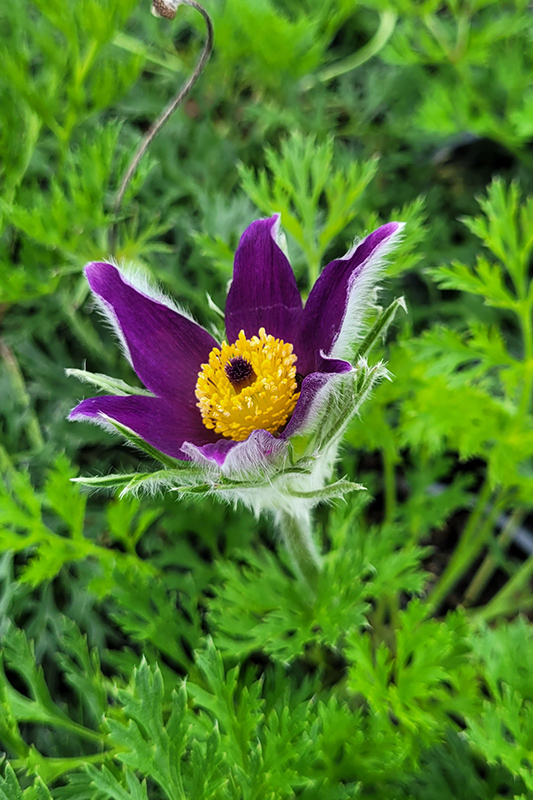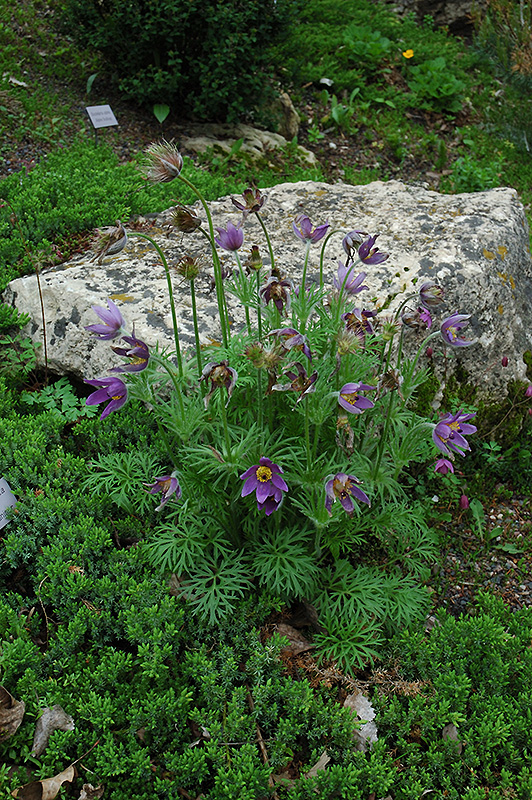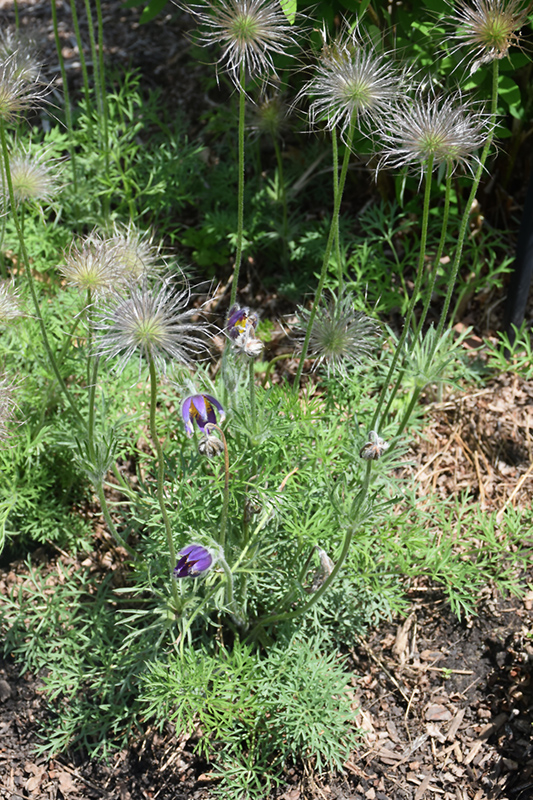Digging deeperPlant Library
Plant Height: 8 inches
Flower Height: 12 inches
Spacing: 6 inches
Sunlight:
![]()
![]()
Hardiness Zone: 3
Other Names: Prairie Crocus
Ornamental Features
Pasqueflower has purple cup-shaped flowers with yellow eyes at the ends of the stems from mid to late spring, which are interesting on close inspection. The flowers are excellent for cutting. Its deeply cut ferny compound leaves remain green in color throughout the season. The silver fruits are carried on plumes from early summer to early fall.
Landscape Attributes
Pasqueflower is an herbaceous perennial with a mounded form. It brings an extremely fine and delicate texture to the garden composition and should be used to full effect.
This is a relatively low maintenance plant, and is best cleaned up in early spring before it resumes active growth for the season. It is a good choice for attracting butterflies to your yard, but is not particularly attractive to deer who tend to leave it alone in favor of tastier treats. It has no significant negative characteristics.
Pasqueflower is recommended for the following landscape applications;
- Mass Planting
- Rock/Alpine Gardens
- General Garden Use
Planting & Growing
Pasqueflower will grow to be about 8 inches tall at maturity extending to 12 inches tall with the flowers, with a spread of 8 inches. When grown in masses or used as a bedding plant, individual plants should be spaced approximately 6 inches apart. It grows at a slow rate, and under ideal conditions can be expected to live for approximately 5 years. As an herbaceous perennial, this plant will usually die back to the crown each winter, and will regrow from the base each spring. Be careful not to disturb the crown in late winter when it may not be readily seen!
This plant does best in full sun to partial shade. It requires an extremely dry, well-drained growing location, and will usually die in standing water. It is not particular as to soil type or pH. It is somewhat tolerant of urban pollution. Consider covering it with a thick layer of mulch in winter to protect it in exposed locations or colder microclimates. This species is not originally from North America.
A NetPS Plant Finder tool
This Plant Library is for informational purposes only. We may or may not carry the items listed. During many times of the year, we may carry many more plants in our store than are listed in the Plant Library. Please contact us directly at 303-690-4722 or visit our store for current availability and for assistance.


